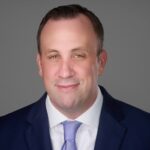
Understanding the Marchman Act: Involuntary Commitment for SUD in Florida
Understanding the Marchman Act: Involuntary Commitment for SUD in Florida
Information
Date & Time
-
-
Location
-
Farmers Table Boca
1901 North Military Trail
Boca Raton, FL 33431
Learning Objectives
Participants will be able to:
-
Describe the criteria for the Marchman Act.
-
Identify an appropriate patient for the Marchman Act.
-
Explain the clinical obligations of the facility when a patient is court-ordered to treatment.
-
Distinguish how to perform a Marchman Act assessment and the information to include in the report.
Educational Goal
The goals of this program are for treatment professionals to: (1) have a general understanding of the Marchman Act, (2) be able to identify an appropriate patient for the Marchman Act, and (3) be able to appropriately recommend the implementation of the Marchman Act to a family in order ensure the safety of the patient and, hopefully, be in a position to save lives.
Description
This course is designed to cover all aspects of a Marchman Act case from beginning to end.
The Marchman Act is a Florida civil law that allows for involuntary assessment, stabilization, and treatment of individuals who are impaired by substance abuse and co-occurring mental health conditions and are treatment resistant. This law is significant for treatment professionals because it can put guardrails in place for a patient who is treatment resistant, and it oftentimes allows for more effective treatment when the option of leaving against clinical advice is removed. It is important to note that the involuntary treatment can take place in a private, non-lockdown facility where involuntary individuals receive treatment alongside voluntary patients.
This course provides all information needed including the basics, key definitions, procedural hurdles and pitfalls, the burden of proof and preparation for the hearing, and key elements like extensions, contempt, and modifications. The course will also cover key changes under Chapter 397 since the passage of HB 7021, which changed the landscape and procedure of the Marchman Act.
Target Audience
- Addiction Professional
- Counselor
- Marriage & Family Therapist
- Psychologist
- Social Worker
Presenters

Craig Robinson is a partner at Robinson and Casey, PLLC, a law firm dedicated to helping families with loved ones suffering from substance abuse and mental health concerns access treatment. He has been admitted to practice law in Pennsylvania and New Jersey since 2008 and Florida since 2020. He also maintains licenses in the US District Courts for the Eastern District of Pennsylvania, New Jersey, and the Southern District of Florida.
Craig began his career as a civil trial attorney, and he has represented clients in courtrooms throughout Pennsylvania and New Jersey and tried more than 50 jury trials. In 2018, he was admitted to a treatment center for his own addiction, and while there, decided to build a new life in Florida. In 2019, Craig was so moved by his personal experience in treatment that he enrolled in a Master’s Program for Social Work and graduated with an MSW degree in 2022. Craig has a passion for helping those with addiction and mental health conditions to access recovery.
In addition to his MSW degree, Craig holds a Bachelor’s Degree in Supply Chain and Information Systems from Penn State University and a Juris Doctor degree from Villanova University. Craig has been on multiple boards of directors for not-for-profit agencies, including the American Foundation for Suicide Prevention. Currently, Craig is on the board of the Crossroads Club in Delray Beach, Florida, a not-for-profit that provides a safe haven and 12-Step meetings for those who have been adversely affected by addictive substances.
Craig looks forward to serving families in accessing recovery for their loved ones.
Financially Sponsored By
- BrentCare Behavioral Health